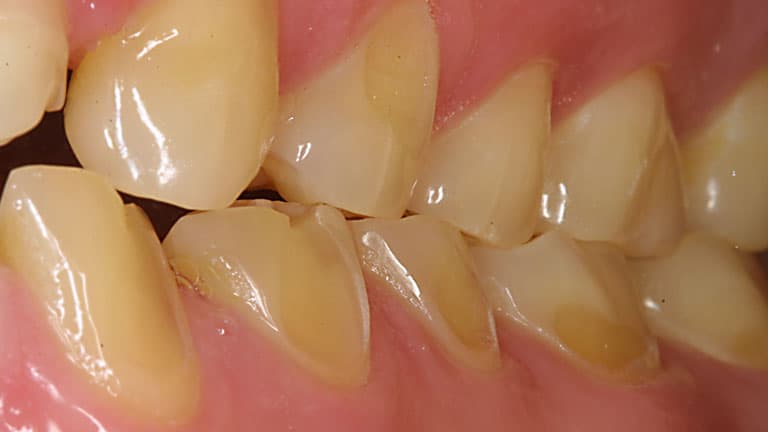Dentistry: A Frontline Defender in Spotting Systemic Diseases
When you think of a dentistry, you likely picture routine cleanings, x-rays, and perhaps a filling or two. However, the role of dentists goes far beyond just ensuring your pearly whites are healthy. In fact, your dentist plays a crucial role in early detection of systemic diseases. This fascinating aspect of dental care is not just about teeth but about how oral health is closely tied to your overall wellbeing.
Anúncios
Dentistry: More Than Just Teeth and Gums
It’s surprising for many to learn that a routine dental examination can reveal signs of systemic diseases. Conditions like diabetes, leukemia, and even heart disease can manifest symptoms in your mouth before they are detectable elsewhere. Dentists often spot clues such as bleeding gums, dry mouth, or unusual oral lesions, which can indicate broader health issues that might require a closer look.
Anúncios
Dentistry: The Oral-Systemic Health Connection
The connection between oral health and systemic health is well-documented. For instance, gum disease (periodontitis) is linked with cardiovascular health. Bacteria from inflamed gums can enter the bloodstream, potentially leading to heart disease, arterial blockages, and stroke. This linkage has prompted dentists to play an essential role in the early detection of these conditions. Thus, maintaining good oral hygiene and regular dental check-ups are vital, not just for your oral health but for keeping your whole body healthy.
Technology Enhancing Early Detection
Advancements in dental technology have significantly bolstered the ability of dentists to detect systemic diseases early. Sophisticated tools such as digital x-rays and laser diagnostics can identify the early signs of bone loss or soft tissue changes that might be missed by the naked eye. Additionally, saliva tests can now detect markers for diabetes and certain cancers, making the dentist’s office an unexpected frontline for diagnostic health screenings.
Anúncios
Education and Awareness
Raising awareness about the systemic implications of oral health is another critical area where dentists are making a significant impact. By educating patients about the signs and symptoms to watch for, dentists empower individuals to take charge of their health. This education also includes guidance on lifestyle changes that improve oral and systemic health, such as smoking cessation, nutrition, and regular physical activity.
Dentistry: A Collaborative Approach to Healthcare
The future of dentistry involves a more integrated approach with other healthcare sectors. By working closely with GPs, cardiologists, and oncologists, dentists can provide a comprehensive healthcare strategy that benefits the patient’s overall health. This collaborative approach ensures that signs of systemic diseases are not only identified early but are managed in a way that considers the patient’s entire health profile.
Bridging Gaps in Healthcare
Dentistry’s role in systemic disease detection also helps bridge gaps in the healthcare system. Often, individuals visit their dentist more regularly than their general practitioner. This regular interaction provides a unique opportunity for dentists to screen for health issues that may be otherwise overlooked. By filling this gap, dentists can direct patients to seek appropriate medical care sooner, potentially speeding up the intervention process and improving prognosis.
Innovation in Dental Practices
Innovative practices in dentistry continue to evolve, with new diagnostic tools and methods enhancing the ability to assess overall health through dental exams. For example, the development of AI-driven diagnostic tools helps in analyzing dental images not only for dental diseases but also for indicators of systemic diseases like osteoporosis and diabetes. These innovations make dental visits more comprehensive, turning them into a critical checkpoint for overall health monitoring.
The Role of Preventative Care
The emphasis on preventive care in dentistry is a key factor in its role in systemic disease detection. By focusing on prevention through proper oral hygiene and regular dental check-ups, dentists help maintain not only oral health but also reduce the risk of developing systemic diseases. Preventative care serves as the first line of defense against diseases that manifest in the mouth but have far-reaching effects on the body.
Strengthening Patient Relationships
The role of dentists in detecting systemic diseases also strengthens the dentist-patient relationship. When patients understand that their dentist is looking out for their overall health, not just their oral health, trust and communication improve. This enhanced relationship facilitates more open discussions about health concerns, symptoms, and lifestyle choices, leading to better health outcomes.
In conclusion, the dentist’s role extends far beyond dealing with cavities and gum disease. As frontline healthcare providers, dentists are essential in the early detection and management of systemic diseases. By examining the subtle signs present in the mouth, they contribute to diagnosing and treating conditions that may otherwise go unnoticed. Regular dental visits are, therefore, not just about oral care; they are a critical part of maintaining overall health. This integration of dental and general health care represents a holistic approach to health that benefits everyone, helping to detect, treat, and prevent serious health issues before they develop further.




